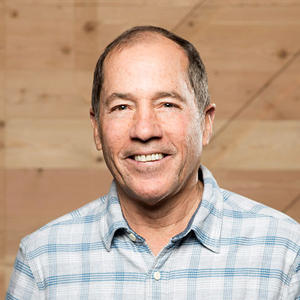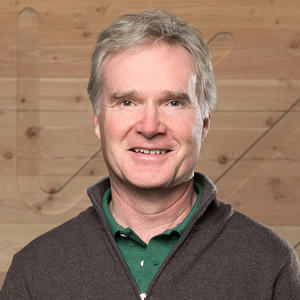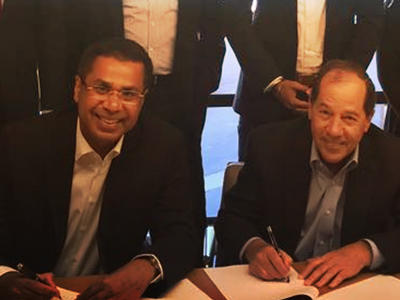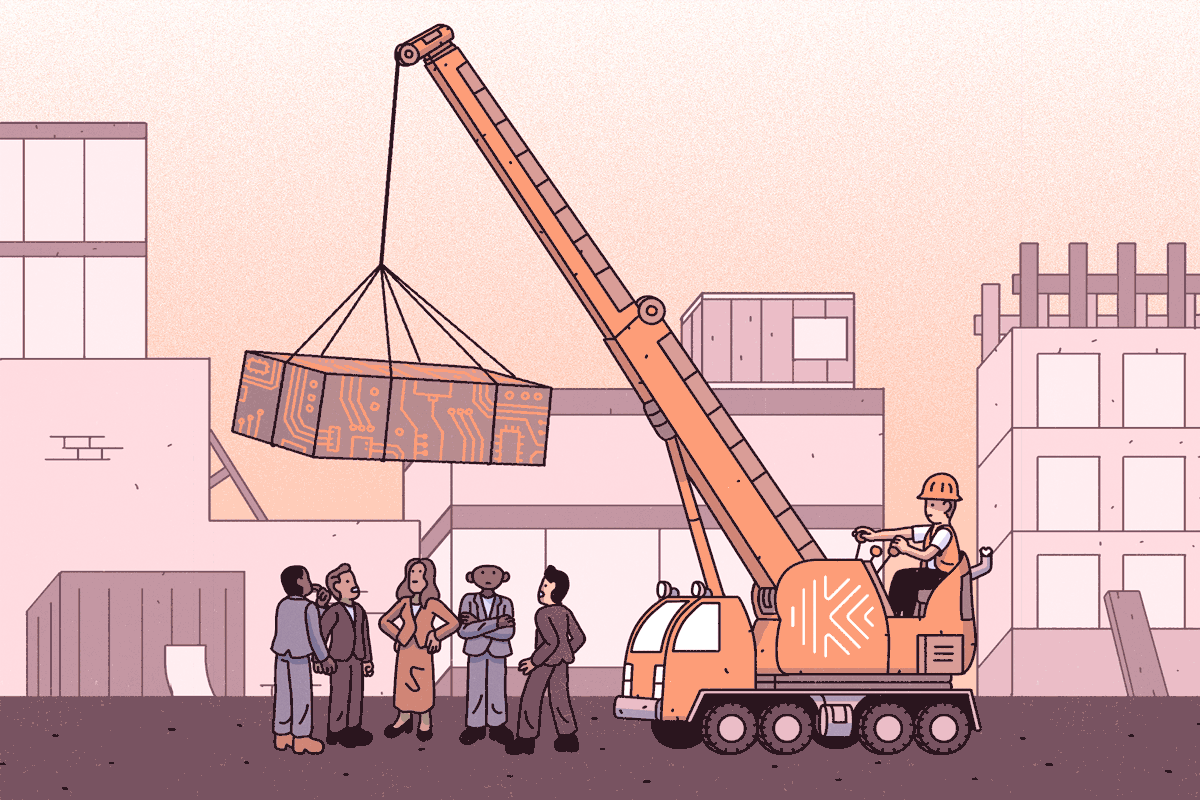In an email to employees last week, Katerra CEO Michael Marks had a few uplifting thoughts on the year gone by.
His startup, which seeks to transform the $12 trillion global construction industry through technology and automation, has grown to more than 8,000 employees, is nearing profitability and will soon open a new state-of-the-art factory in California. Clients are returning, he wrote, and the company has more than $15 billion worth of building projects in a pipeline spanning the United States to Saudi Arabia.
“We can say with pride,” Marks wrote of the company’s feats, “that once we begin a project, we never walk away from that job.”
But his message glossed over a few key facts. In the last month, Katerra’s co-founder quietly left the firm’s board, the company closed its first factory and hundreds of employees have been laid off.
And the firm’s patchy track record of delivering projects stands in stark contrast to Marks’ assertion. In fact, The Real Deal found, Katerra has failed to complete roughly a dozen projects and could only name one that was delivered on time (the company says 26 prefab projects will be delivered by the close of 2019). All the while, logistical and technology-based issues have chipped away at the company’s image as a revolutionary tech startup.

Michael Marks, CEO of Katerra
Some clients have ended their relationship with the firm. Other clients, however, are tied to Katerra’s executives, and have drummed up business for the company — a similar arrangement used by WeWork executives, which became a concern for some investors when the co-working firm planned to go public.
Despite the turbulence, Katerra continues to grow rapidly in the U.S., having acquired at least eight general contractors and architecture firms in the past two years and more than 20 companies total since its founding.
“Katerra is nothing but a developer on steroids,” said one former employee, who was among more than a dozen people interviewed for this article that worked with, or for, Katerra. Many signed non-disclosure agreements and did not want to be identified.
Think of any startup in the last 20 years. Katerra has grown faster than most and got to unicorn status, so I think there’s a cleanup happening. — Mark Randall, Katerra’s first CEO
Katerra’s largest investor, SoftBank, has played a major role in driving its valuation north of $4 billion, and has poured more than $1 billion into the company. Other major investors such as Foxconn and DFJ have signed on, while executives from Google, Amazon and Electronic Arts have joined the company’s leadership.
According to Katerra, the company has raised more than $2 billion from investors, including a recent $700 million funding round led by SoftBank. Though multiple news organizations reported that the funding was pending, Katerra never publicly announced its completion, an unusual move for a company that is able to command capital of that size. (That infusion did not appear in public filings, a company spokesperson said, because it was part of a private placement. Filings with the Securities and Exchange Commission show that Katerra raised a little more than $2 billion by the end of 2018.)
With this kind of hype, the Silicon Valley company’s rise follows a similar narrative to that of other SoftBank-backed startups, including WeWork, Compass and Uber: Break down the walls of an industry, grow at all costs and figure out the metrics later.
“Think of any startup in the last 20 years. Katerra has grown faster than most and got to unicorn status,” said Mark Randall, Katerra’s first CEO. “So I think there’s a cleanup happening.”
As the company has sought to bolster its reputation in the U.S., Katerra has inked massive deals overseas, in Saudi Arabia and India, where it has committed to building hundreds of thousands of homes. In an email to employees, Marks said the Saudi Arabia deal is valued at $40 billion.
“While we have realigned resources in our company this year, overall Katerra has grown,” Katerra spokesperson JZ Rigney said in a statement.
Rigney also clarified Marks’ email to employees sent last week to say that the company takes pride in completing its jobs “once construction begins.”
Executive fractures
Over three decades, Marks has worked his way to the top ranks of Silicon Valley’s elite. In the 1990s, he steered electronic components manufacturer Flextronics from the brink of bankruptcy, went on to briefly lead Tesla as CEO and served on GoPro’s board of directors.

Fritz Wolff
“He’s a pretty amazing deals guy, and the respect for Michael in Silicon Valley is off the charts,” said Randall, who said he left Katerra on good terms to return to consumer electronics.
In forming Katerra in 2015, Marks’ friend and longtime business partner, Fritz Wolff, suggested they create a Flextronics for construction — effectively a vertically integrated company that controlled the entire building process; instead of hiring an architect, an engineering firm, a general contractor and subcontractors, Katerra could do it all.
To do this, Marks’ tapped his relationships in Silicon Valley to launch a web of companies that propped up Katerra, some serving as its investors, others as customers, or sometimes both, TRD has learned. The arrangement is reminiscent of ownership structures at WeWork, where its former CEO Adam Neumann personally owned buildings that he leased back to his company — a friction point for investors ahead of its failed public offering.
For example, Wolff, who joined Katerra as co-founder, owns a private equity firm with a massive construction arm that was Katerra’s sole customer in its initial years, providing it with more than a dozen projects.
In addition to Marks and Wolff, renowned tech investor James Davidson also joined Katerra as a co-founder. Together, the three launched a separate firm known as Paxion Capital, which they used to invest in other Katerra customers.

James Davidson of Silver Lake
Through Paxion, the trio invested in candy store retailer, Lolli & Pops. The retailer, which filed for bankruptcy in August, lists Katerra as one of its creditors, with $2.9 million owed for renovation work. (Paxion’s CFO Duncan Roberts, who at one time served as Katerra’s CFO, is listed as a member of Lolli & Pops’ board of directors.)
“With a group of people, who are also the customers, that’s where a potential conflict of interest emerges,” said Richard Morris, a partner at Allegaert Berger & Vogel, who specializes in securities law. “That’s a question of how it’s disclosed and dealt with.”
A Katerra representative said in a statement that it “values good corporate governance and has policies and procedures that align with public company reporting standards.”
No one understood from the beginning why we had the Phoenix factory. — former Katerra employee
The co-founders also launched an investment fund called Kandle, which in part allowed them to take an equity position in some of Katerra’s projects. While it’s not clear exactly how much Kandle has raised, internal documents seen by TRD show that Katerra has forecasted that the fund’s capital could nearly double Katerra’s development starts to $2.1 billion by 2022.
Last month, however, fractures began to appear in Katerra’s leadership after Wolff quietly left the company’s board. People who have spoken with Wolff since his departure described the split as acrimonious, and it has raised questions about the potential impact on Katerra’s portfolio.
According to Katerra, Wolff left to “concentrate on other professional pursuits,” but remains a shareholder and supporter of the company. Both Wolff and Katerra maintain that they will continue working together. In an email to employees last week, Marks said that Wolff represents only 15 percent of Katerra’s customer base.
“Katerra has continued to improve its processes since launching, and we continue to support their vision,” a spokesperson for the Wolff Company said in an email. “We currently have 17 projects under construction with Katerra and continue to assess new opportunities to work together.”
Tech trials
Katerra has said its mission is to deliver construction projects that are “better, faster and cheaper.” Through tech, the company says, it can streamline the antiquated processes that plague the construction industry.
Such claims are a hallmark of a generation of startups that aim to disrupt their respective industries by replacing byzantine systems with tech. Katerra says it has applied for almost 60 patents, the bulk of which have been filed in the past 18 months. A handful of those have been approved, though they relate to electrical systems and mass timber production.
But like other firms in the SoftBank portfolio, Katerra has faced questions about whether its tech-enabled business model is deserving of the firm’s massive valuation.
Its decision to close the Phoenix factory suggests a failed attempt to achieve this goal. When it opened in 2017 as the company’s first facility, its primary purpose was to manufacture prefabricated components — including wall and floor panels — that could be shipped to construction projects. A series of high-tech machines would assemble the components, which were tracked with an RFID chip system.
But soon enough, problems surfaced with some materials made in Phoenix. At its first project in Spokane, Washington, known as Riverhouse, wall panels made of timber arrived at the job site warped and unusable, according to two people familiar with the matter. One person involved in the project said this was because the timber, sourced from the wet climate of Washington, was trucked to Phoenix, where it sat in searing heat, and became warped.
“No one understood from the beginning why we had the Phoenix factory,” said one former employee.
Steve Weilbach, Katerra’s head of sales, said the Phoenix factory’s closure was merely a result of the company opening a “newer more advanced” facility in California.
Following the announcement that more than 200 employees would be laid off as a result of the closure, Marks vaguely acknowledged the shortcomings of the Phoenix factory in an email to employees: “We learned what we were doing right, and we also learned about lots of improvements that could be made.”
“Key customers”
Katerra’s roster of Silicon Valley stars and its pairing with the Wolff company has been an effective way to attract business. In a 2018 presentation, investor Navitas Capital noted that Katerra was bolstered by a multifamily pipeline handed over from Wolff, which enabled the company to “act on the initial inertia to attract key customers.”
But some of these “key customers” have since ended their relationship with Katerra. The Sobrato Organization, which was working with Katerra on a project in Sunnyvale, California, consisting of 135 townhouse units, confirmed to TRD that they are no longer working with the company. The project, at 1139 Karlstad Drive, had been dogged by disagreements over costs, The Information previously reported.
Another issue that has caused friction among clients are cost overruns. One problem, former employees say, was a flawed process the company used to price jobs. In addition to estimating the price of a job, Katerra would apply a discount to prove that it could deliver its projects cheaper than conventional construction companies.
At one project it developed with Wolff’s firm, a 554-unit residential site in Kirkland, Washington, known as Lifebridge, Katerra’s estimators priced the job at close to $90 million in 2017. According to a former employee who raised concerns with Katerra executives about the pricing, the warning fell on deaf ears. Instead, Katerra executives later expressed shock after learning that the job would actually cost closer to $140 million — almost $50 million more than it had agreed to.
Weilbach, Katerra’s head of sales, said that in the case of Katerra’s earliest customers, including Wolff, the company often took over projects after much of the design work was already completed. Since Katerra wasn’t controlling all aspects of such projects, the company’s touted cost and time efficiencies weren’t always realized.
“It’s much harder for us to apply that value when we take over someone else’s work versus starting from inception,” Weilbach said.
Some projects have been abandoned altogether. Internal documents obtained by TRD show that of 57 projects Katerra was overseeing in the U.S. at the end of January 2019, nearly a dozen appear to be dead or have halted. (The company said its pipeline, currently at 300-plus projects, includes those overseen by firms it has acquired. That figure also includes jobs in which it worked in various capacities – performed engineering work or provided other services, for example – but was not the general contractor.)
One of those projects was a 120-room hotel in California known as Tru by Hilton. In 2018, Katerra was hired by California-based RAR Hospitality to handle construction management and design of the hotel. The hotel would be Katerra’s first, and its executives expressed enthusiasm to RAR leaders that the project would help launch the company into the hospitality space.
But a month before construction was slated to begin, Katerra backed out.
“They touted us as one of the most important projects in the company,” said Cameron Lamming, an executive at RAR. “And then dumped us.”
A $40 billion question
While some of the company’s U.S. projects have run into issues, Katerra has turned its attention to even more ambitious projects in Saudi Arabia and India. The company’s operations there, in some ways, mirror its strategy in the U.S: Grow quickly through acquisitions and build factories to accommodate an influx of work.
They got a bucket full of money. The question is whether the market is ready for them. — Rich Wood, chairman and CEO of Plaza Construction
In Saudi Arabia, Katerra won a competition last year after building a 1,334-square-foot home in 48 hours. As a reward, the firm inked a non-binding agreement to build hundreds of thousands of housing units in Saudi Arabia, with the first phase being 4,101 homes.
The connection is unsurprising: Saudi Arabia is the largest backer of SoftBank’s Vision Fund — the vehicle backing Katerra.
“We help our portfolio companies navigate entrance to new and promising markets, such as Katerra’s work for Saudi Arabia,” a SoftBank spokesperson said in a statement.
If executed, Katerra’s plans would reshape the country. In his email to staff last week, Marks said that the agreement with Saudi Arabia is valued at $40 billion — almost twice the cost of Hudson Yards in New York.
To start, Katerra says it will be building 10 to 15 homes a day by the second quarter of 2020. A representative said the company has broken ground on one factory in Saudi Arabia and has plans for another.
Further east, the company has also unveiled plans for a massive operation in India. In June 2018, it announced its acquisition of India-based KEF Infra., a four-year-old infrastructure manufacturer. According to news reports at the time, the venture had $3.7 billion worth of work booked across India and North America.

KEF Infra’s Faizal Kottikollon and Katerra’s Michael Marks (Image via India CSR Network)
“They got a bucket full of money,” said Rich Wood, chairman and CEO of Plaza Construction. “The question is whether the market is ready for them.”
A second-generation factory
Back in the U.S., Katerra hailed the closure of its Phoenix factory as part of the company’s next phase. In a blog post, Katerra described the factory as its “first-generation approach to building component manufacturing,” which it has advanced significantly in a new factory it’s building in Tracy, California.
According to Katerra, construction on the Tracy facility is nearly complete, and is expected to produce some 12,500 multifamily units on an annual basis — or three times as much as the Phoenix factory.
A year ago, the company told California officials that its business model relied on construction sites being within 500 miles of the new factory. At the time, Katerra said it had 17 projects underway in the area, though the status of these projects is unclear. A spokesperson for the company noted that the factory is near rail, shipping ports and freeways, which will enable transport in the region.
However, at least three major multifamily projects in that radius have since stalled or been abandoned, including the Sobrato development in Sunnyvale. Tracy’s City Council approved a 264-unit project on Valpico Road, but construction hasn’t started. Katerra says construction is slated to begin in the spring.
“They were supposed to start construction in November,” said Tracy Planning Commissioner Joe Orcutt, who voted against the project. “We’ve all been kind of waiting.”
Correction: An earlier version of this story misidentified which of RAR Hospitality’s projects Katerra worked on. It was Tru by Hilton.
Contact Kathryn Brenzel at kathryn@therealdeal.com and David Jeans at dj@therealdeal.com.
